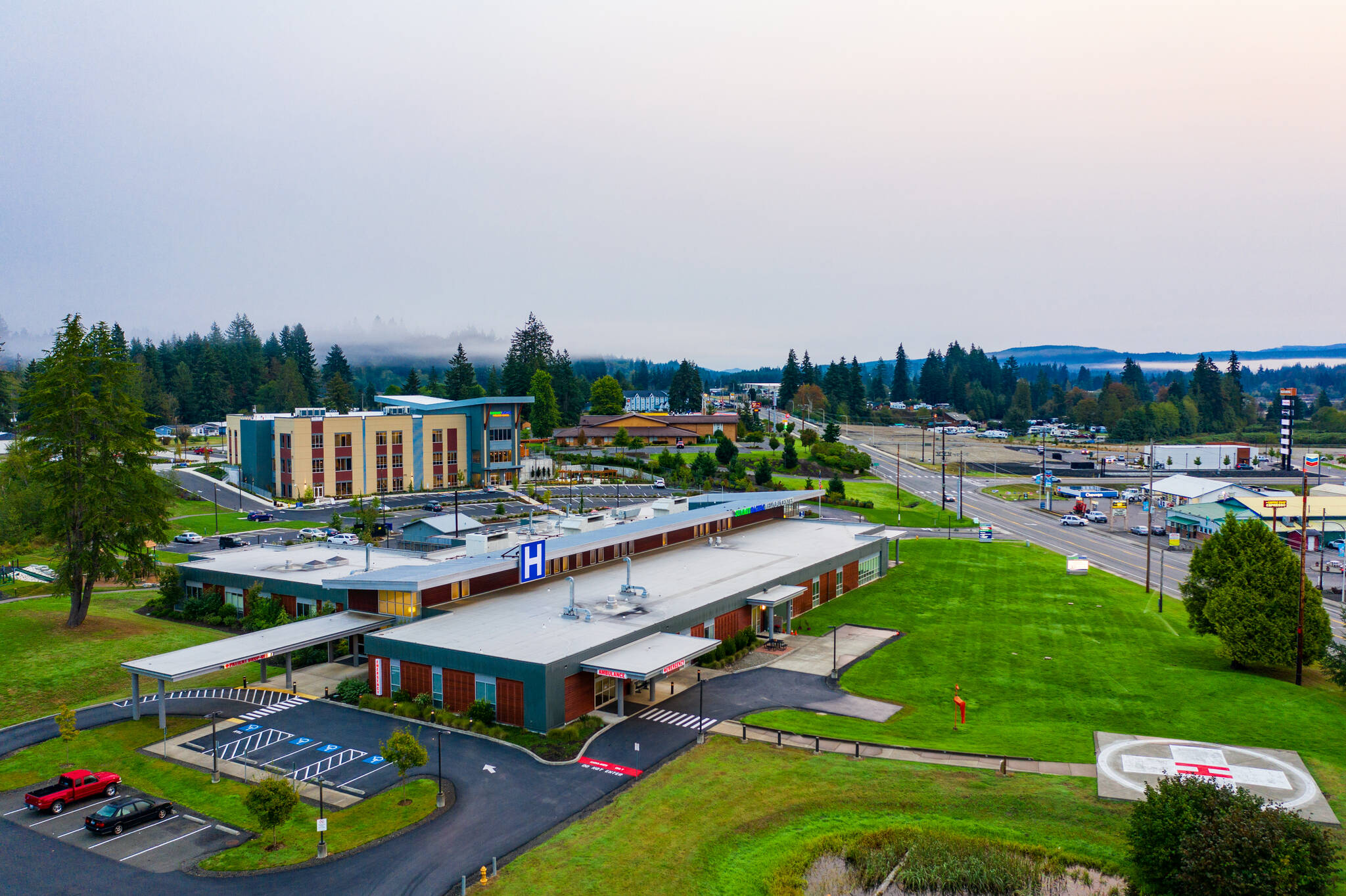Summit Pacific Medical Center received on Tuesday nearly $1 million of county funding toward the development of a new mental and behavioral health clinic in Elma.
With that money, which will go mostly toward staff, Summit Pacific is on target to open the clinic within the next six months. It will be the first low-barrier, non-discretionary mental health clinic in Grays Harbor County.
“We’re full steam ahead,” said Summit Pacific CEO Josh Martin. “We’re ready to go, now we just have to hire.”
In addition, the Grays Harbor County Board of Commissioners approved about $350,000 among four other agencies to improve mental health access in the county.
Those various projects, along with the Summit Pacific clinic, amount to the first leg of Grays Harbor County Public Health’s 2023-2025 strategic plan, much of which focused on increasing mental health services throughout the county.
County commissioners in February approved public health’s strategic plan, devoting $1 million from the county’s treatment sales tax fund. Since then, public health formed a committee of local health providers and mental health workers to evaluate eight different proposals from different agencies to use the money.
That committee provided a funding recommendation to county commissioners, who went forward with the plan as recommended, except for one big change — for Summit Pacific’s clinic, they tacked on $470,000 to the $500,000 originally recommended by the committee, after Martin said earlier in the meeting that the full million dollars — or close to it — would be necessary for him to open the clinic without having to readjust his current model.
“If you are dealing with only hiring half of the staff because you only have half of the investment, you can’t stand it up,” Martin told commissioners.
Martin said he initially brought his concept for a mental health center to the county about one year ago. Original projections put startup costs at $2.2 million. Inflation has driven that number up, Martin said, but the extra cost will be covered by the hospital district, not through a new tax, but in the hospital’s cash reserves.
All of Summit Pacific’s Tuesday award came from the treatment sales tax fund, including the $470,000 the committee originally recommended be left in the fund for later allocation. The county’s treatment sales tax, at the amount of one-tenth of a percent on all sales, can only be devoted for mental health treatment purposes, and supplies a large part of the budget for Grays Harbor County Therapeutic Court. The Grays Harbor County Sheriff’s Office also uses the fund for certain programs.
At the commissioner’s meetings earlier this year, officials from those agencies expressed concern about the fund’s long term viability, although commissioners assured that devoting $1 million to mental health services this year would not jeopardize the fund.
Awards to other agencies Tuesday were funded through state and federal COVID-19 grants originally intended to provide for a cold weather shelter last winter. When plans for a shelter fell through, about $400,000 was reallocated to mental health services.
Half of that will go to Behavioral Health Resources for care focused on students and youth. BHR plans to provide drop-in services for youth at all Grays Harbor-area schools, as well as up to three visits with a mental health professional regardless of payment or insurance type.
The Hoquiam Police Department’s behavioral health navigator program, headed by Laina Caldwell, will receive $48,000 for a six-month pilot. Chaplains on the Harbor will also use $89,000 to launch a mental health pilot program
Mental health and substance use health care provider Acadia will receive $3,000 of treatment sales tax money for staff training.
Summit Pacific mental health clinic
The focus of Summit Pacific’s new mental and behavioral health clinic is to provide preventative, low-barrier care for all payer types. Martin said it will be similar to a walk-in clinic, but “geared toward those who might be struggling to find access to services.”
“Sometimes, the effort of scheduling a primary care visit takes a lot of effort and energy, and there’s a lot of anxiety tied to that,” Martin said in an interview.
With a focus on prevention, the goal is to treat mental illness before it reaches a crisis. As it stands now, Martin said, mental health patients in crisis have two options — the hospital or jail, both of which are often brimming.
Martin noted several instances of mental health patients spending long periods of time in Summit Pacific’s emergency department. Many health agencies which currently provide mental health services accept state Medicaid patients, but not federal Medicare, commercial, or no-pay patients, meaning the hospital can’t discharge those patients without a referral.
But the new clinic will accept all payment types, preventing crises, and “hopefully get to a point where we can save lives and reduce the impact on the system,” Martin said.
The clinic will also work closely with Summit’s 16-bed treatment facility in McCleary.
As opposed to primary care, mental health treatment is not a revenue-generator, Martin said, because volume isn’t as high. The project won’t break even until year three, and even that’s a “very optimistic projection.” Low revenue is a reason many hospitals don’t get involved with mental health services, Martin said.
“This service is a community need,” Martin said. “The problem is if it doesn’t generate revenue, we have to find funds to help pay for it elsewhere.”
Contact reporter Clayton Franke at 406-552-3917 or clayton.franke@thedailyworld.com.


